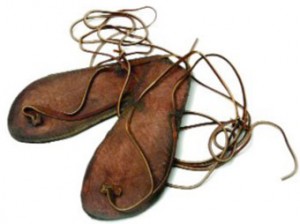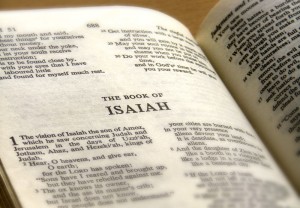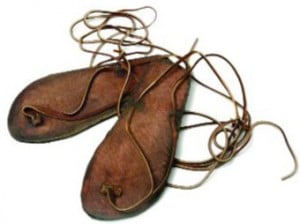 For almost a decade, I journeyed with the prophets in the scriptures observing only the judgment and condemnation they proclaimed. Then one summer, I trekked through a most painful personal desert.
For almost a decade, I journeyed with the prophets in the scriptures observing only the judgment and condemnation they proclaimed. Then one summer, I trekked through a most painful personal desert.
In his mercy, God revealed a hidden, unpalatable sin in my life. I recognized the ugly fangs but seemed helpless to tame it. In my frustration, unbridled anger lashed itself on family and friends. Bitterness and resentment walked close by my side and whispered welcomed morsels of distrust that tasted sweet to my ear but soured my spirit. I found myself at the apex of a successful–though limited–ministry and totally out of control.
As the fall of the year approached, I dreaded a reunion with the prophets. A few months before, I’d relished in their pronouncements of doom and despair. However, now their long fingers of guilt were pointed at my heart, my sin.
 I breezed through Isaiah without allowing the Word of God to touch me. Study without personal conviction was becoming easy as I allowed religious fervor to replace my trust. Then I came to Jeremiah. I’d especially identified with him in the past. We’d become such good companions, that I hated to peruse through the verses without allowing his words to touch me. I managed until I came to chapter 4,
I breezed through Isaiah without allowing the Word of God to touch me. Study without personal conviction was becoming easy as I allowed religious fervor to replace my trust. Then I came to Jeremiah. I’d especially identified with him in the past. We’d become such good companions, that I hated to peruse through the verses without allowing his words to touch me. I managed until I came to chapter 4,
Break up the fallow ground, (God said to Judah and Jerusalem) and do not sow among thorns. Circumcise yourselves to the Lord, and remove the foreskins of your heat.
Blow a trumpet in the land; cry aloud and say, ‘Assemble yourselves, and let us go into the fortified cities.’ Lift up a standard toward Zion! Seek refuge, do not stand still, for I am bringing evil from the north, and great destruction.
For this, put on sackcloth, lament and wail; for the fierce anger of the Lord has not turned back from us.
My heart stood pierced and pricked. Jeremiah, so long my companion, had become my accuser. Yet, in chapter 5, verse 18, I discovered a piece to the prophetic puzzle which had been missing for me. Jeremiah proclaimed, “‘Yet even in those days,’ declares the Lord, “I will not make you a complete destruction.'”
My mind burst with hope. As though He were writing a promise on my heart, God said to me, “I will not make you a complete destruction.” Could it be true? Was there really a point for returning to trust?
‘Do you not fear me?’ declares the Lord. ‘Do you not tremble in my presence? For I have placed the sand as a boundary for the sea. An eternal decree, so it can not cross over it. Though the waves toss, yet they cannot prevail; though they roar, yet they cannot cross over it.’
Again, God’s promise. There was a boundary to the testing He would allow me to endure. I started to search for more assurances of God’s unfailing love for me. there were everywhere. “I am the Lord who exercises lovingkindness, justice and righteousness.” My eyes latched on to the word lovingkindness. God placed it before justice and righteousness. Could He love me more than He wanted to judge me?
As I searched with my eyes of understanding, my hear reeled under the words, “We are put to great shame.” But I felt soothed and comforted to see that Jeremiah had proclaimed of his own despair, “Woe is me, because of my injury! My wound is incurable.” I was no longer alone in my struggle against sin. I was joined by my close ally, Jeremiah.
Could this be the missing link that would set me free from the condemnation and despair I so richly deserved? How would I reach God’s heart for deliverance? Have you found that God is more compassionate than you have been, even in regard to your own sins? What was the turning point for you?

